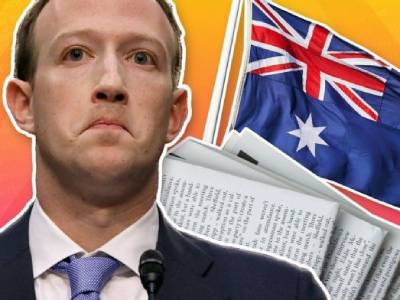
Australia is locked in a pitched battle with Facebook. The island continent’s House of Representatives has passed a new law last night, which requires big tech platforms like Facebook and Google to reach commercial agreements and strike revenue deals with news outlets whose content drives traffic on the platforms. In retaliation against this new ‘Media Bargaining law’ as it is known in Australia, Facebook blocked people in Australia from sharing news stories.
However, this attempt by Facebook to pressurise the Australian government has misfired. The latter has refused to buckle under the pressure from the tech giant. An Australian lawmaker Monday communicated in plain and simple terms that Australia would stick to the proposed law, requiring social media websites to pay Australian news organizations for links shared on their websites, despite the Facebook block.
“The bill as it stands … meets the right balance,” Simon Birmingham, Australia’s Minister for Finance, told Australian Broadcasting Corp Radio, furthering that the bill in its present form ensures “Australian-generated news content by Australian-generated news organisations can and should be paid for and done so in a fair and legitimate way”.
While a Facebook representative declined to comment on the new proposed law which is expected to pass through the Senate later this week, the global corporation DIGI which represents Facebook, Google and other online platforms like Twitter Inc said on Monday that its members had agreed to adopt an industry-wide code of practice to reduce the spread of misinformation online.
Why Facebook has been in war with Australia
For the uninitiated, Facebook has been in war with Australia ever since the latter came up with legislation that would require social media giants like FB, Google to pay news outlets. Angered over this proposed legislation, Facebook had unfriended Australia by cutting off essential information services on health and emergency services.
This Facebook ban met with a huge backlash in Australia, from the Prime Minister to the regular Australian citizen. “Facebook needs to think very carefully about what this means for its reputation and standing,” said Australian Communications Minister Paul Fletcher. The Australian PM Scott Morrison took to Facebook itself to slam the Big Tech giant.
“Facebook’s actions to unfriend Australia today, cutting off essential information services on health and emergency services, were as arrogant as they were disappointing. I am in regular contact with the leaders of other nations on these issues. These actions will only confirm the concerns that an increasing number of countries are expressing about the behaviour of Big Tech companies who think they are bigger than governments and that the rules should not apply to them. They may be changing the world, but that doesn’t mean they run it,” wrote the Australian PM.
Facebook has since then removed restrictions on essential services FB pages for Australians, but the mood is still sour. The new law is expected to pass through the Senate later this week. The hashtags #DeleteFacebook and #BoycottZuckerberg are still trending on Twitter as Australians delete their profiles to protest Facebook’s news ban. The Australian PM, in a direct statement, said that Facebook has “attacked a sovereign nation” and, “shown tech giants think they’re bigger than governments”.
Source : OpIndia

 Md Farooq Sheikh from Gujarat poses as an army major to smuggle liquor from Maharashtra
Md Farooq Sheikh from Gujarat poses as an army major to smuggle liquor from Maharashtra Jadavpur Univ revokes permission to celebrate Ram Navami on campus after granting it
Jadavpur Univ revokes permission to celebrate Ram Navami on campus after granting it Pakistan: Ancient Hindu temple in Khyber Pakhtunkhwa demolished for commercial complex
Pakistan: Ancient Hindu temple in Khyber Pakhtunkhwa demolished for commercial complex Rameshwaram cafe blast: NIA arrests bomber Mussavir and mastermind Abdul
Rameshwaram cafe blast: NIA arrests bomber Mussavir and mastermind Abdul Rampant violence rocks schools in France during Ramzan
Rampant violence rocks schools in France during Ramzan 2 ISIS terrorists arrested in Germany for sexual abuse of minor Yazidi children
2 ISIS terrorists arrested in Germany for sexual abuse of minor Yazidi children